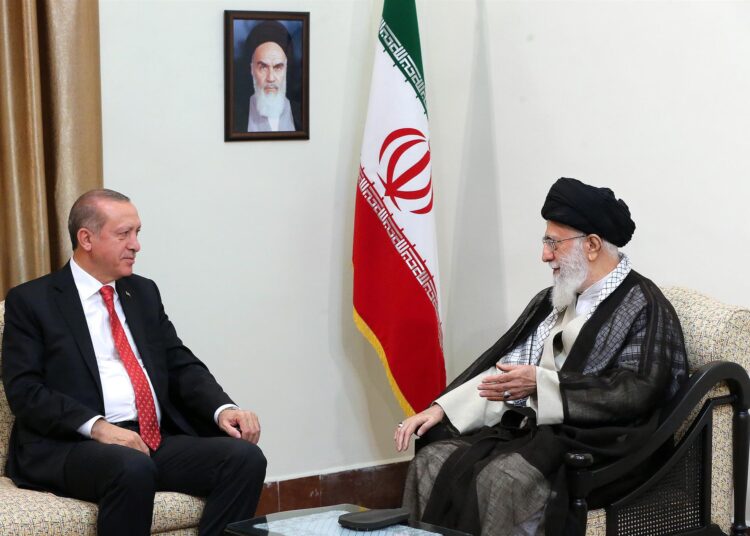Abdullah Bozkurt/Stockholm
The United States has intensified its crackdown on Turkish companies, imposing new punitive sanctions on about a dozen firms in Ankara and Istanbul for allegedly assisting sanctioned Iranian entities in procuring dual-use goods and technologies, sending a clear warning to President Recep Tayyip Erdoğan’s pro-Iran government that Washington will not tolerate sanctions evasion.
The US Department of Commerce’s Bureau of Industry and Security (BIS) has added nine Turkish companies to its Entity List, accusing them of assisting Iran in obtaining US-origin goods and technologies in violation of American export controls. Announced in the Federal Register on October 9, 2025, the move represents one of the most sweeping designations of Turkish companies ever made in a single US enforcement action.
Behind the dry legal language of the listing lies a story of covert supply routes, aviation parts and the growing friction between Washington and Ankara over sanctions enforcement. The US government asserts that these Turkish entities served as middlemen, brokers or front companies diverting controlled items — many of them related to aviation, dual-use machinery and industrial technologies — into Iranian hands.
The Federal Register published a BIS notice sanctioning several Turkish companies for violating US laws by procuring dual-use goods and technologies for Iran:
The new rule, effective immediately, imposes a blanket ban on US exports, re-exports or in-country transfers to the listed entities. Any transaction involving US goods or technology now requires a license that the Commerce Department says it will deny by default. The notice cites each company’s “involvement in diversion of US-origin items to Iran, including to entities already designated on the US Entity List and the Treasury Department’s Specially Designated Nationals list.”
Among the named companies are Atadoruk Havacilik Savunma Sanayi Ticaret Limited Sirketi, known in the industry as Atadoruk Aviation, and TGB Aviation, two companies deeply rooted in Turkey’s growing aviation and defense-supply ecosystem. Their appearance on the list underscores the long-running US concern that Turkey has become a convenient logistical hub for Iran’s acquisition of sensitive technologies barred by sanctions.
Atadoruk Aviation, headquartered in Ankara, presents itself online as a global supplier of aircraft and helicopter parts “for US and NATO platforms.” Its website advertises maintenance and procurement capabilities for military and civilian clients around the world. The company’s own marketing language — highlighting work with US and NATO systems — now stands in stark contrast to Washington’s allegation that it facilitated the transfer of restricted American-made components to Iranian end-users.
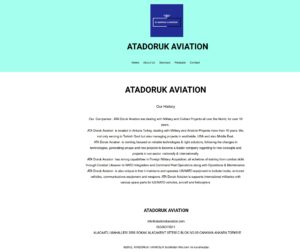
“ATA Doruk Aviation,” as it styles itself, advertises more than a decade of work on “Military and Aviation Projects” and emphasizes support for “US and NATO equipment,” a sales pitch that now reads uncomfortably against Washington’s diversion allegations. The company is run by Turkish citizen Aynur Deniz Gürsoy according to trade registry filings. The articles of association authorize operations across a wide spectrum of defense, aerospace and dual-use technology sectors.
Its official purpose includes the research, design, production, assembly, testing, import and export of electronic, electro-optical, guidance, software and mechanical systems for land, air, sea and space applications. The company is also licensed to engage in the maintenance and operation of military and civilian aircraft, and to trade in aviation fuel, lubricants and spare parts domestically and internationally.

TGB Aviation (Tugberk Havacılık İthalat İhracat Ltd. Şti), based in Istanbul, is accused even more specifically of transshipping US-origin aircraft components into Iran through intermediaries linked to Iran Aircraft Manufacturing Industries, or HESA. That state-owned company, long blacklisted by the US Treasury, is central to Iran’s efforts to sustain its aging fleet of Western-built aircraft despite decades of sanctions. According to BIS, TGB’s network enabled HESA to keep acquiring spare parts essential for maintenance and potentially for military adaptation.
BIS now claims that behind this footprint lay a transshipment network feeding HESA, which operates at the heart of Iran’s sanctioned aerospace complex. The commercial metadata and the government’s narrative line up in a way that suggests scale, reach and intent — exactly what export-control investigators look for when they decide a broker is more than a broker.
The company was established on March 23, 2017 in Pendik, Istanbul, by İbrahim Uluç Demiral as a single-owner aviation trading firm. It was moved a new location in the Kadiköy district in October 2024. The company’s scope covers aircraft and spare parts trade, aviation maintenance, training and consultancy, with authority to operate internationally and engage in dual-use trade activities. Demiral holds full managerial and representation powers.
The other seven Turkish companies span a range of sectors — machinery, industrial equipment, construction materials and calibration services — but share a common accusation: acting as conduits in Iran-related procurement schemes. They comprise DBC Makina Sanayi ve Ticaret A.Ş., Business Metal Sanayi ve Dış Ticaret Ltd. Şti., Erçetin İş Makinaları Yedek Parçaları İnşaat ve Dış Ticaret Ltd. Şti., PMR Teknik Makine Ticaret Ltd. Şti., Sisdoz Arıtma ve Pompa Teknolojileri A.Ş., UMS Ankara Kalibrasyon Mühendislik Müşavirlik Mümessillik Sanayi ve Ticaret Ltd. Şti. and Yant İnşaat Gıda Turizm Sanayi Dış Ticaret Ltd. Şti.
DBC Makina Sanayi ve Ticaret Anonim Şirketi was originally established in April 1991 by Mehmet Feridun Ertürk and Salih Zeki Ertürk, both Turkish nationals, as a manufacturing and trading company specializing in drilling, mining and industrial machinery.
Over the years the company evolved into a key Turkish supplier of drilling rigs, drill rods, bits and accessories used in geotechnical engineering, exploration and construction projects. Its headquarters and production facilities are located in Kocaeli, within the Dilovası Mermerciler Sanayi Sitesi, an industrial hub known for heavy machinery and manufacturing companies.
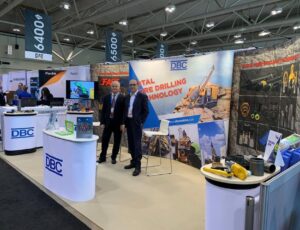
According to the latest corporate filings, ownership now rests with Feridun Ertürk and Berna Ertürk, indicating that the company remains a family-run enterprise. Feridun Ertürk continues to play an active managerial role in the company’s operations. A company embedded in the drilling and machinery trade is well-placed to handle goods that can straddle civilian and restricted purposes, precisely the kind of conduit investigators flag when tracing indirect transfers to sanctioned destinations.
Business Metal Sanayi ve Dış Ticaret Ltd. Şti., though less visible online, is registered in the My Office 212 complex in Istanbul’s Bağcılar district, a tower crowded with small trading houses. Trade directories describe it as a metals trader dealing in flat and stainless steel products. Its minimal online presence may in itself be a red flag — many diversion networks rely on transient import-export firms whose operations exist largely on paper, used to funnel goods through short-lived logistics and invoice chains.
According to the trade registry filing, the company was founded in March 2011 in Turkey as a limited liability company (Limited Şirket), The founding act explicitly states that the firm was established by four Iranian nationals — Asghar Mozaffari, Shahin Tadaiyon Chahartagh, Mohammadsaleh Alipoorsafari and Ali Hosnikooshkeno — all listing the same residential address in Tehran.
According to the most recent filings, these individuals collectively hold all company shares, maintaining a 100 percent foreign ownership structure. In April 2025 the company executed a capital increase, injecting additional funds to strengthen its financial base and expand operational capacity. This injection reflected either retained earnings or new shareholder contributions, signaling that the firm remains active, solvent and under the same Iranian ownership.
Erçetin İş Makinaları Yedek Parçaları İnşaat ve Dış Ticaret Ltd. Şti., founded in 1987, markets OEM and aftermarket spare parts for construction machinery such as engines, turbos, bearings and seals used in Caterpillar and Komatsu equipment. It is owned by Turkish businessman Hakkı Ercan Erçetin. With outlets in Istanbul’s Kartal and Başakşehir districts, its catalog is typical of high-volume industrial traders. Such businesses, dealing in high-value mechanical components, can be co-opted to procure controlled items under generic trade codes and re-export them under misdeclared categories, a pattern seen in multiple Iran-related enforcement cases.
According to information available on its official website, the company distributes products it procures from global manufacturers such as ITR, DISA, FMC and Goetze, among others.
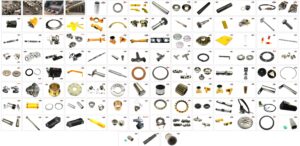
PMR Teknik Makine Ticaret Ltd. Şti., also known by the alias “Roziba Inan Co.,” presents itself as an industrial and petrochemical trading company with three decades of experience. It was established in June 2020 by Roziba Inan. Its contact data traces to the Tuzla and Maltepe districts of Istanbul, both hubs of small-scale machinery traders. The BIS notice cites both aliases, indicating that the company’s multiple identities may have been used to obscure shipment routes or to bypass supplier compliance checks.
Sisdoz Arıtma ve Pompa Teknolojileri A.Ş. is one of the more established names on the list. Founded in April 2008 and headquartered in Ataşehir, Istanbul, Sisdoz is a recognized supplier of water-treatment and chemical-transfer systems, including dosing pumps and fluid-handling technologies. Its products, while marketed for environmental and industrial applications, include pump types classified under export-control categories (such as ECCN 2B350) that can be used in chemical or dual-use processing. US officials note that the firm diverted such equipment to Iranian entities, triggering its inclusion on the Entity List.
The most recent trade registry filing, dated February 22, 2023, records changes to the company’s management and representation structure. Following a general assembly and board resolution, Serhat Utku and Aşkın Kaya were reappointed as board members until January 31, 2026, with Utku assuming the position of chairman and Kaya serving as deputy chairman.
The filing also confirms that three executives were granted joint representation authority valid until 2026: Serhat Utku as general manager, Aşkın Kaya as sales and marketing director and Yasin Yalçın as finance and accounting director. Each is authorized to sign on behalf of the company jointly with one of the others. The previous finance director, Durmuş Vazoğlu, was dismissed from his role and no longer has signing authority.
UMS Ankara Kalibrasyon Mühendislik Müşavirlik Mümessillik Sanayi ve Ticaret Ltd. Şti., established in 2012, operates in the niche field of calibration and metrology, maintaining laboratories and providing field services in Ankara’s Ostim industrial district. Public company listings and earlier brand traces under “Uzm. Metroloji Servisi” indicate an established technical service provider. Yet calibration certificates are valuable in sanctions-evasion networks: Falsified or proxy-issued certificates can disguise the true origin or destination of sensitive machinery, a risk BIS appears to have identified.
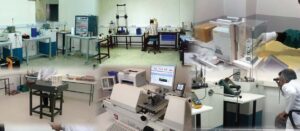
The company was established in January 2012 in Turkey as a limited liability company by three Turkish nationals: Şekip Turhan, Hikmet Terzi and İbrahim Çıldır. In June 2013 the two founding partners, Turhan and Çıldır, transferred their shares to Hikmet Terzi, who became the sole owner and general manager of the firm. Since then, Hikmet Terzi has retained full ownership and continues to manage the company with complete executive authority.
Yant İnşaat Gıda Turizm Sanayi Dış Ticaret Ltd. Şti., headquartered in the Metropol high-rise complex in Ataşehir, is a multi-sector trading company involved nominally in construction, food and tourism. It was established in June 2022 by Turkish national Tulay Atabay.
Trade data show small export volumes in recent years, including coatings and surfactants shipped to Iran, suggesting that the firm’s trading arm served as an intermediary for sanctioned customers. Like many such “umbrella” firms in Turkey’s foreign-trade landscape, Yant’s structure allows rapid entry and exit from markets and sectors, a flexibility that can be exploited by procurement agents seeking disposable partners.
What these nine companies share is not a sector or brand identity but a posture: brokers and manufacturers wired into the logistics of hard-to-trace goods — aircraft spares, drilling and machine components, pumps and dosing systems — the dull hardware of modern industry. That posture is what US investigators look for when they stitch together customs trails, shipping ledgers and financial flows. And it is why the Commerce Department’s Entity List entries for Turkey read like an X-ray of a procurement network that uses the country’s bustling trade hubs — Ankara’s defense orbit, Istanbul’s Bağcılar and Ataşehir towers and Tuzla’s industrial estates — to feed demand that official channels forbid.
For these companies, the consequences are immediate and severe. American suppliers must now obtain explicit licenses, almost certainly denied, to continue any business with them. Foreign companies that use US components or software in their own products could also be prohibited from dealing with the listed Turkish entities. In practice the designations cut the firms off from much of the global high-tech and aviation supply chain.
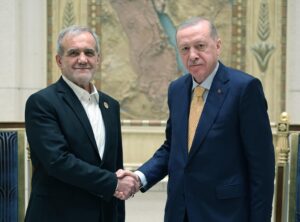
The Turkish government has so far issued no public statement or comment on the designations, but the action threatens to rekindle tensions with Washington over Ankara’s uneven enforcement of US sanctions on Iran. Western officials have repeatedly warned that Turkish intermediaries and free-trade zones have been exploited by Iranian procurement agents seeking aircraft parts, microelectronics and industrial machinery banned under US export laws.
The inclusion of the Turkish companies comes as part of a broader US campaign targeting networks that feed Iran’s military and aviation sectors. The same Federal Register notice added 19 Chinese and one Emirati entity for related activities. A senior US official familiar with the action described it as a “multi-country disruption effort” aimed at cutting off supply routes to Iran’s drone, missile and aircraft programs.
While US enforcement agencies rarely disclose the investigative methods that lead to such listings, analysts point to shipping records, customs data and financial transactions that reveal suspicious trade patterns — goods exported to Turkey or the UAE and then re-routed to Iran or Iranian-controlled firms. The case of TGB Aviation appears to fit this model: aircraft components shipped legally to Turkey, then forwarded through intermediaries to entities linked to Iran’s sanctioned aerospace industry.
The effect of these new restrictions will ripple beyond the nine companies themselves. Turkish banks, insurers and logistics providers are now likely to distance themselves from any of the named entities, fearing secondary sanctions or loss of access to the US financial system. Exporters in Europe and Asia who rely on Turkish distributors may also face heightened scrutiny.
For Iran the crackdown is another blow to its ability to sustain civilian and military aviation. With limited domestic production capacity and ongoing restrictions on its airlines, Tehran has long depended on a patchwork of foreign intermediaries to secure spare parts. Each new enforcement action narrows that network further.
The addition of nine Turkish companies to the Entity List signals that Washington’s patience with the Erdogan government on circumvention networks is wearing thin and that Turkish industry has been placed squarely under the microscope.

